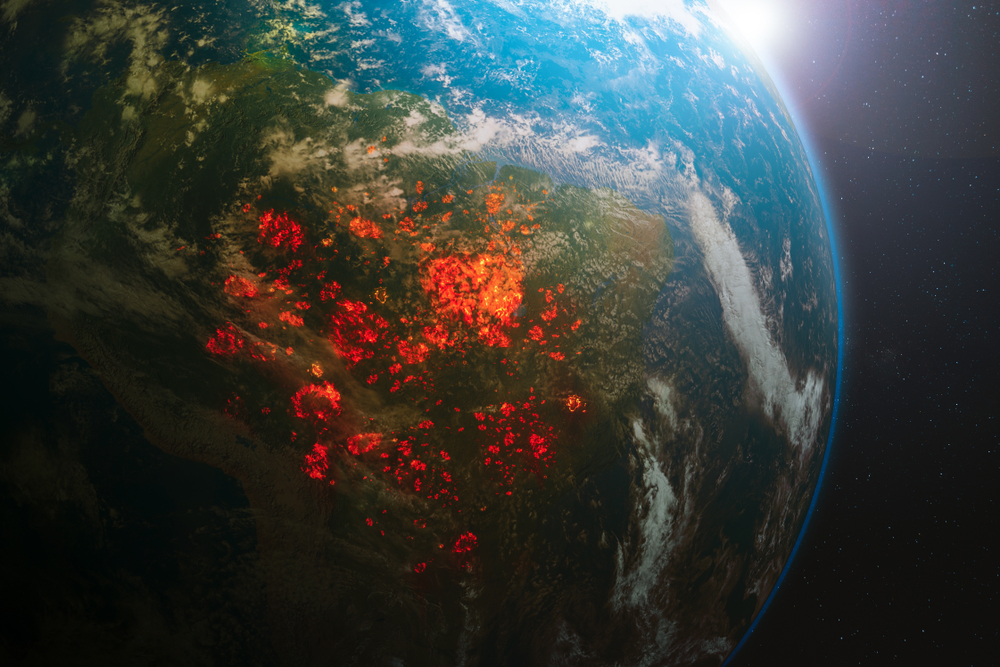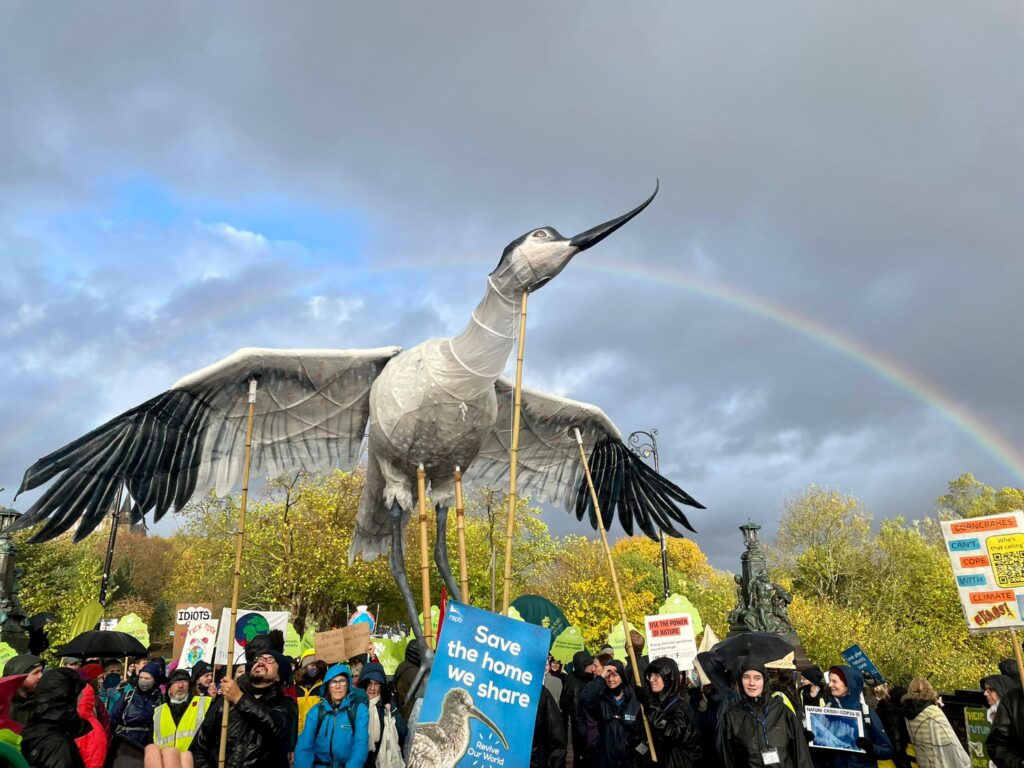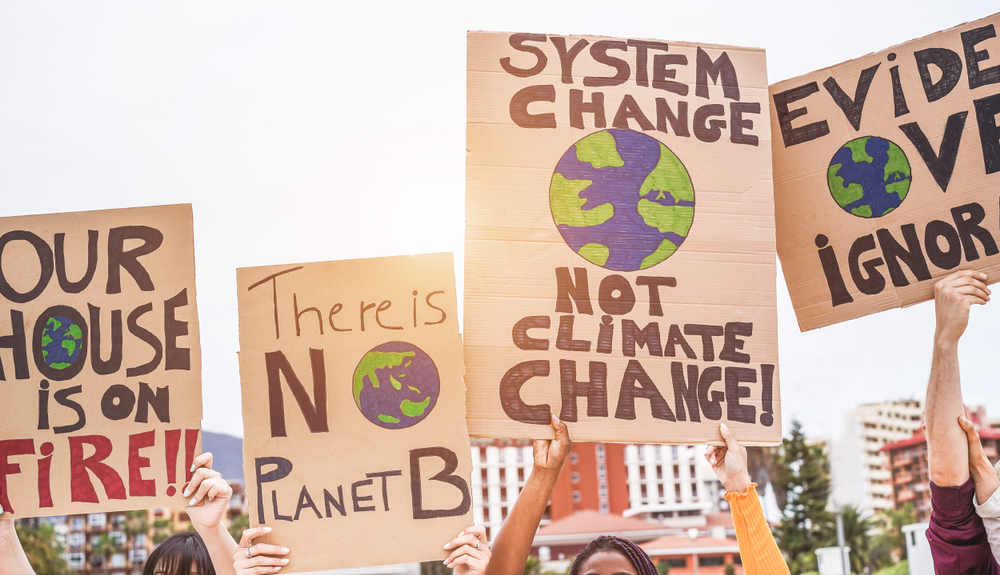Are World Leaders Copping out of the Climate Crisis?

There are many moments throughout history that have seen an overwhelming uprising for change; now is one of those moments. At COP28 it’s time for World Leaders to decide. Will they lead the charge or will they be forced into action by the millions of people around the world who are determined to change our current trajectory?
By Sarah Brady, Head of Communications
In the future, no-one will be able to say that this generation did not know. As far back as 1896, we knew that carbon dioxide released into our atmosphere would increase global temperatures. Over decades, scientists have predicted a trajectory of increasingly dire consequences as we have removed nature, destroyed our biodiversity, and pumped more and more greenhouse gasses into the atmosphere.
In 1992, world leaders recognised the changing climate as a major threat and set up the UN Framework Convention on Climate Change (UNFCCC), with the annual meetings of member states known as the Conference of the Parties (COP). Next Thursday marks the start of COP28. That means 27 of these meetings have so far failed to produce the radical action the world desperately needs to combat the threat of the climate crisis.
However, if you look back at global climate politics over the last 30 or so years, it is a miracle that any progress has been made at all! Starting with humble beginnings, the Kyoto protocol emerged in 1997, gently encouraging countries to reduce emissions. Enforcing this agreement was beset with issues, with the largest carbon emitters such as China and India not bound to take any actions. Even as the protocol lurched into the early 2000s, another five years passed until the protocol was finally adopted. Just a shame it was lacking the biggest carbon emitter of all, the United States of America.
Header Image: ©Shutterstock/ Janis Abolins

Another remarkable milestone was marked in 2007. Countries finally accepted that climate change was ‘most likely’ created by human activity… It’s amazing that it only took over 100 years to join the dots. Over the next decade, various protocols and agreements attempted to unite countries in reducing emissions. But even with walkouts galore, major polluters including China, India and the United States failed to agree to any targets that even had the slightest hint of preventing global temperatures rising more than 2 degrees Celsius compared with pre-industrial levels.
”It seems the small fact that the existence of all life on Earth is relying on them might have faded from the minds of our world leaders.”
Several inconsequential COPs later, COP21 finally had a hallelujah moment in 2015. One hundred and ninety-six countries committed to keep global temperatures below 2 degrees Celsius and ‘pursue efforts’ to stabilise global temperatures with a maximum increase of 1.5 degrees Celsius, in a landmark protocol called the Paris Agreement. Unfortunately, world leaders have since discovered that the practical side of implementing this agreement requires significantly more effort than agreeing in principle. Who knew?
COP26, held in Glasgow, just about kept hopes alive for the Paris Agreement but as described by Alok Sharma, the then-COP26 President, the ‘pulse is weak’. COP27 also had its breakthrough moment – it had only taken 30 years to acknowledge developing countries should be compensated for the loss and damage caused by actions of other, richer countries.
This brings us to the much-anticipated COP28. With scandals already emanating from the COP28 office and in a world rife with conflicts, it seems the small fact that the existence of all life on Earth is relying on them might have faded from the minds of our world leaders. After all, what really matters is that they can cling onto power now. What happens in the future is a matter for the next world leaders. And what a terrifying future awaits if our current leaders continue to act this way.

But the story is not over yet. Whilst we have to face the inconvenient truth that our world leaders have proven to be lacking in ambition, we still have a life raft. It’s made up of you and countless others who make the active decision to hold our leaders to account. The Climate COPs remain one of the only mechanisms for governments to agree on combined global efforts to combat the climate crisis. So, we will be there at COP28, together with other NGOs, climate activists, and scientists fighting for every single word that increases ambition on phasing out fossil fuels, champions the rights of more vulnerable countries, Indigenous Peoples, local communities, and marginalised groups to have adequate resources, inputs and engagement to act as needed, and put nature at the heart of climate solutions. The growing recognition of the biodiversity crisis and the importance of the role of nature for climate, is a testament to voracious policy advocacy efforts at the Climate COPs, and we will continue to fight for nature, climate and people.
There are many moments throughout history that have seen an overwhelming uprising for change; now is one of those moments. At COP28 it’s time for world leaders to decide. Will they lead the charge or will they be forced into action by the millions of people around the world who are determined to change our current trajectory? Rest assured, no matter the outcome, WE will not sit and do nothing.
